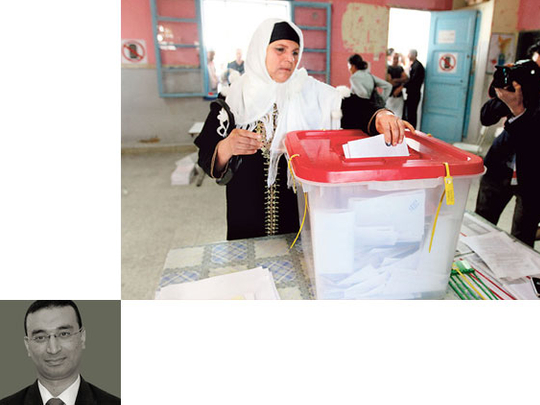
It is very obvious that the current development model has failed people, nature, and societies. Demonstrations are spreading all over the world demanding a better quality of life and more equity. The entire system — whether related to finance, climate, food, biodiversity and energy — seems to be in a crisis.
Humanity has passed some of the ‘planetary boundaries' which are intended to define a ‘safe operating space', humanity has passed the climate change rate, biodiversity loss (terrestrial and marine) and interference with nitrogen and phosphorous. In addition to challenges related to stratospheric ozone depletion, ocean acidification, global freshwater use, change in land use, chemical pollution, atmospheric aerosol loading. Rio+20 is a golden opportunity to fulfil the aspirations of today's generation and overcoming these crises.
This has led to a global rethink on the current models of development and doing business. The focus has shifted to the advantages and importance of a Green Economy, which is about people, planet and prosperity.
The green economy and governance are the core interest of Rio+20. Preparations are on all over the world for the big event in June next year. The Arab region has just finished its preparatory meeting for Rio+20 in the headquarters of the League of Arab States in Cairo last week.
Sustainable development
However, one must say that a green economy does not replace sustainable development. Achieving sustainability rests almost entirely on getting the economy right. In fact, current economic models have not substantially addressed social marginalisation and resource depletion.
It is hoped that the economy of tomorrow, the green economy considers the connection between economy, environment and society. It is a new model that provides an interface between economic, environmental and social issues. Therefore, it must be the task of policy specialists and decision makers to ensure that the move toward a green economy is not just another excuse for people and companies to achieve profits and do business-as-usual (BAU) while claiming to be green. The growth process should be oriented in a responsible fashion toward a green economy.
The Green economy aims to encourage new value-based growth by including more social and environmental considerations in the growth process. It must be pointed out that many of these values are already part of local cultures in the Arab world. It aims at increasing investment in fields like agriculture, tourism, water, and biodiversity and will be linked to poverty alleviation, and impacts on health and trade.
In fact, the transition towards a green economy should be supported by enabling public policies and conditions. It is clear that the green economy of a country is moving in the right direction if there is an increase in green investment, quantity and quality of jobs in green sectors, and in the share of green sectors in gross domestic product (GDP). At the same time, there should be a decrease in energy/resource use per unit of production as well as in carbon dioxide and pollution level/GDP and wasteful consumption.
To encourage the shift to a green economy, governments have to do their job, which may include some or all of the following: subsidy reform, green tax and permit markets, incorporating sustainable development into trade agreements, sustainable public procurement (green procurement), incentives, land use and urban policy, integrated management of freshwater, environmental legislation, monitoring and accountability and most importantly, the participation of the various stakeholders (non-government organisations, academia, business, women, youth…etc) in the design and execution of various policies in order to reach society common goals.
It is worth mentioning that no one sector or organisation can drive the transition to a green economy alone. A green economy requires a multi-disciplinary, multi-stakeholder and multi-sectoral approach.
For the Arab region, the transition to a green economy should be gradual, and that Arab countries should emphasis that green economy should be:
- According to each country's economic status;
- Should not be a pretext to create more trade barriers;
- Should not be a means to limit the right of developing countries to utilise their natural resources; and
- Should not be a tool to exempt developed countries from their commitments.
Most essentially, the Arab world should consider that Rio+20 is a new window of opportunity to ask and insist on acquiring green technology from the developed world. In fact, green technology transfer for the Arab world on its own would be a real addition in line with the additionality concept, which is at the heart of the current Kyoto Protocol of climate change.
Arab countries can be a key partner in the Rio+20 process especially that an important initiative from the UAE, an "Eye-on-earth summit" this December, which gained international attention and support and planned to deliver recommendation to the Rio+20 event next June.
Last but not the least, the Arab region should use the momentum of the Arab Spring and the socio-political transformations in the region as an opportunity to reconsider development priorities, notably through social dimensions, such as social justice and job creation and adopt a green economy in the context of sustainable development.
Dr Mohamed Abdel Raouf is an independent environmental researcher.











